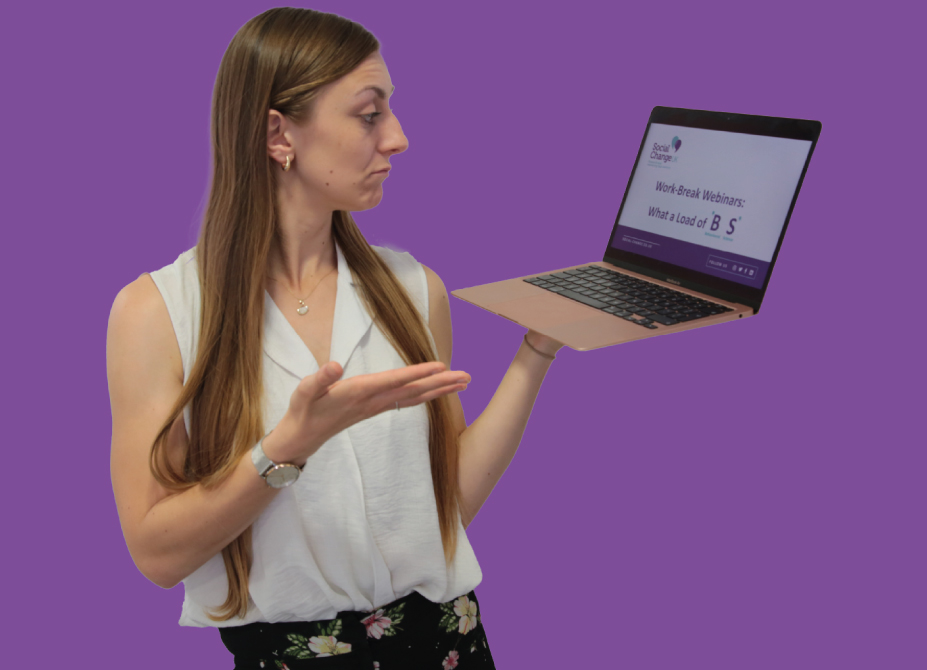The old phrase has it that ‘an ounce of prevention is worth a pound of cure.’ It may be somewhat telling that the quote hasn’t been updated for modern audiences who are more used to kilograms and millilitres – not because we can’t be bothered to do the quick bit of mental arithmetic to convert from imperial measures, but more that it seems the idea of preventative measures being the sensible and cost-effective option is being given short shrift, particularly when it comes to healthcare.

With an ageing population, the UK is facing various issues with its healthcare system, some of which have been widely reported in the media and discussed in the corridors of power. In 2018, the UK's Health Security Agency reported that long-term chronic conditions accounted for 70% of total health and social care spending in England. It is clear that preventative interventions that enable positive behaviour change are essential for helping to prevent serious health problems. In fact, it is estimated that up to 80% of premature heart attacks and strokes, 75% of type 2 diabetes, and 40% of cancers can be avoided through making changes to health-related behaviours.
Despite noting how effective early interventions can be in treating vast swathes of the populace, it appears that the UK has generally continued to wait for it to rain before trying to fix the roof; in 2020, the Office for National Statistics reported that despite a dramatic increase in preventive care spending (mainly due to covid testing), it accounted for just 6.7% of overall government healthcare expenditure. It’s difficult to understand why this disparity in spending continues to persist – why do we continue to wait until it’s (almost) too late?
Does it just come down to money? Is it simply because it’s easier for accountants to judge and justify the cost-effectiveness of something like a hip-replacement operation (when a person’s mobility is curtailed, spend £x000 and get one happy patient), as opposed to providing, for example, accessible exercise classes and dietary supplements for a whole community, negating the need for complicated and expensive surgeries, but having to wait a decade or two to see if the ‘gamble’ has paid off?

There’s long been discussion about those ‘from the top-down’ decisions, and whether these are made in the best interests of the patients or those of the practitioners, but as citizens we need to take responsibility for our own decisions too. A report from the pharmaceutical giants, Pfizer, notes that social psychologists have observed that, when it comes to managing their health, people often focus more on short-term rather than long-term outcomes of their behaviours, such as assigning more importance to the short-term benefits of pain-killers than the long-term risk of addiction.
Other cognitive biases can come into play too; in some scenarios, we may have a tendency to take no action under conditions of uncertainty (i.e., unfamiliar situations trigger our innate risk aversion). Also, as covered by our very own Dr Rachel Langbein in one of Social Change’s Work Break Webinars, the so-called paradox of choice can cause us to avoid making decisions when confronted with what may feel like an overabundance of options — these biases can all stack up, leading to a situation where we aren’t making sensible decisions about our health, until the binary choice of ‘undergo procedure x unless you want consequence y to occur’ is ultimately presented in much sharper, and indeed starker, focus.
For all this talk of good decision making and sound choices though, sometimes the fickle finger of fate pokes in where it isn’t wanted, and rhyme and reason is pushed aside. In the latest edition of our Tea with the Changemakers podcast, Mark King tells the tragic tale of his son, Oliver, the Liverpool schoolboy who died during a school swimming lesson in early 2011. Mark tells of how he went from being blissfully unaware – “I didn’t know what a seizure was,” he admits – to going on a personal crusade, hoping to ensure that no other family need go through the turmoil endured by the Kings, after witnessing first-hand the consequences of undiagnosed Sudden Arrhythmic Death Syndrome.

The Oliver King Foundation was established in 2012 and has been responsible for the provision of thousands of defibrillators to those who are at risk of cardiac arrest, with over 60 people having had their lives saved as a direct consequence of the foundation’s installations. The charity also provides education around CPR and SADS, with their ultimate goal being a defib device installed in all public buildings of scale: “It will mean families up and down the country won’t ever have to go through the pain that we did when we lost our Ollie,” says Mark.
After a decade of tireless campaigning by the charity, the British government finally committed to installing defibrillators in every school in England when, in July 2022, the then Secretary of State for Education, Nadhim Zahawi, pledged to fund the rollout of 22,000 of the devices. It was bittersweet news for Mark and his family: “If there had been a defibrillator on site, our son would still be alive today.”
The distribution programme begins in earnest this week. “It will mean families up and down the country won’t ever have to go through the pain that we did when we lost our Ollie,” says Mark. “I am thankful to the MPs and ministers who’ve supported our campaign and particularly all of those at the Department for Education.”
Further support for the foundation and its work has come from the world of football, which has seen numerous high-profile stars diagnosed with similar medical conditions as the one which claimed the life of young Oliver, himself a promising young talent on the pitch. Former England and Liverpool star, Jamie Carragher, has often been spotted alongside Mark during his media appearances in the last few years, and was pleased when the defibrillators for schools campaign was given the green light. He said: “This is fantastic news and is testament to the relentless and unwavering campaigning of Mark and Joanne King who’ve fought so hard for this moment.”

It's not just cause for celebration for those on the pitch, but for those in the dugouts too -Dr Zaf Iqbal is the club doctor for Premier League side Crystal Palace, and he held a similar position at Liverpool FC around the time The Oliver King Foundation came into being in the city. A long-time supporter of the charity’s work, Dr Iqbal posted a medical journal article earlier this month, which notes that the schools scheme won’t just benefit children – he writes: “Although the occurrence of OHCA (Out-of-Hospital Cardiac Arrest) is low in schools, about one third can occur within close proximity (300 metres) of a school.”
The Foundation aren’t resting on their laurels though; their mission is ongoing and evolving, with another aim now to pass legislation to require the NHS to offer tests for SADS to everyone. Despite supplying thousands of defibrillators and helping save dozens of lives, Mark King is vowing to carry on campaigning in his son’s memory: "We still lose up to 19 young lives a week, and this has to stop.”
If you want to hear more about The Oliver King Foundation and Mark’s story, listen to our podcast here.
Also, if you have an interest in public health, sign up for our new webinar series at our Changemaker Academy.

